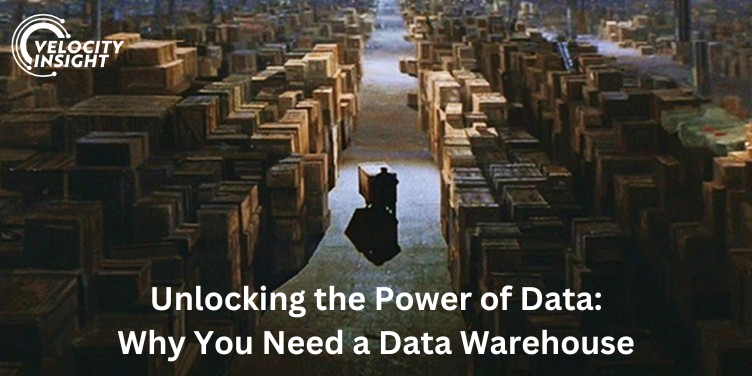Like this, except ctrl+f is a thing and that guy moves at the speed of light
Modern Oil & Gas companies are handling more data than ever.
Staff productivity must improve for your business to remain competitive, whether you’re running a small PE-backed startup or managing a multi-asset E&P powerhouse. Data drives decision-making, efficiency, and growth, but as your data grows, so does the need to manage and utilize it effectively. I’ve long shouted from the mountaintops that everyone needs a data warehouse – but why? And what even is one?
What Is a Data Warehouse?
Think of a data warehouse as the central hub for all your data. It’s like a well-organized library that stores, manages, and provides easy access to multiple systems’ data. This data tends to come from one of your Big Six pieces of software, usually starting with Accounting and Production, but Reserves, Land, & Well Lifecycle are often close behind. A data warehouse allows for evergreen business intelligence reports and dashboards to be connected to a single combined data source that allows for scheduled refreshes to keep those reports up to date.
Why Do You Need One?

- Modernizing Data Flow: The typical E&P company is still operating in a late 90’s mindset where staff throw spreadsheets over the fence to other departments or keep multiple versions scattered across a shared drive. Spreadsheets are merely a snapshot in time, out of date as soon as they’re created and will need to be manually updated to react to data requests. A data warehouse can update automatically throughout the business day, key to moving your business out of the reactionary mindset and towards being proactive about using data.
- Multidisciplinary Insights: The most important work we do at Velocity Insight is connecting data from different disciplines together. Rather than being siloed within disparate departments, connecting production and accounting data provides Ops with real-time cash flows by pad or well. By combining Land with Reserves you can quickly justify saving a lease to preserve PUD value. A Data Warehouse lets you safely and securely share data across the company to accelerate workflows and drive value.
- Simplify Data Management: Without a data warehouse, your data is spread across multiple systems and departments. Connecting that data is blocked by different database architectures, endless VLOOKUPs and INDEX – MATCHed spreadsheets, and UID’s that don’t match between systems. A data warehouse simplifies this process by offering a centralized location for all your data. This organization streamlines data management, saving time and reducing errors.
- Improved Decision-Making: In our industry, timely decisions are often the difference between success and missed opportunities, and a data warehouse allows you to access the information you need quickly. Whether you’re analyzing production trends, tracking CAPEX and LOE, or updating your reserves assumptions, you can make informed decisions faster.
- Data Quality and Consistency: Data quality is vital. Inconsistencies and errors can lead to unreliable insights. A data warehouse allows for data to be cleaned, standardized, and up to date, which enhances the trustworthiness of your reports and analytics. A well implemented multi-source data warehouse allows you to quickly see where wells in the reserves database are missing cost centers from accounting, or if a producing well is missing from your land data.
- Scalability: As your business grows, so does your data. A data warehouse is designed to scale with your needs. With modern cloud storage solutions, you won’t have to worry about outgrowing your data storage or processing capabilities, and the cost to do so has never been lower.
- Compliance and Security: Data security and compliance are paramount. A data warehouse provides features to ensure your data is secure and compliant with regulations, protecting both your business and your data.

How do I get an LOS out of this thing???
Why Don’t You Need One?
Despite my obvious enthusiasm, a data warehouse is not always the answer. Just because you have Azure SQL does not mean you need to make a nightly copy of your entire production data set. We’ve had great success creating ‘mini data warehouses’ for clients by connecting to data in their business intelligence tool of choice. It’s often easier and faster to leave the data in situ, so long as your software provider has a secure endpoint you can connect to.
The data warehouse is not the only species of merged data storage. You can read more about data lakes, marts, and kits here, along with their varying levels of complexity, setup time, and ease of use.
So What?
Your data is your business, so why treat it like an afterthought? A data warehouse empowers your staff to simplify data management, improve decision-making, ensure data quality, and adapt more quickly to new information. With modern cloud and on-prem solutions it’s no longer just a tool for big corporations; it’s an asset for businesses of all sizes.
Think about this: what did your company do in the last 12 months to improve staff effectiveness? What about in the next 12 months? A well implemented data warehouse and business intelligence training to take advantage of it should be high on your priority list to bring your team’s effectiveness to the next level.



